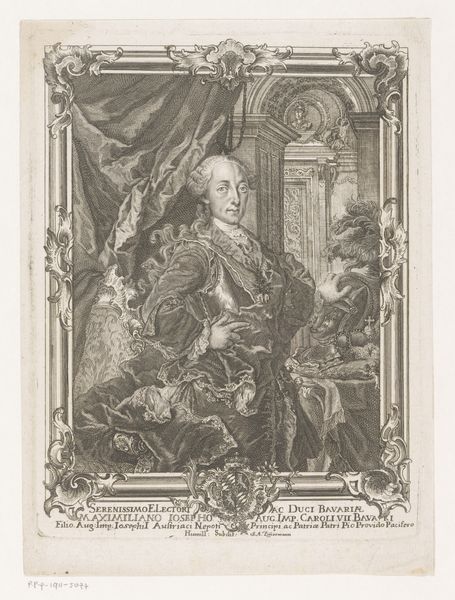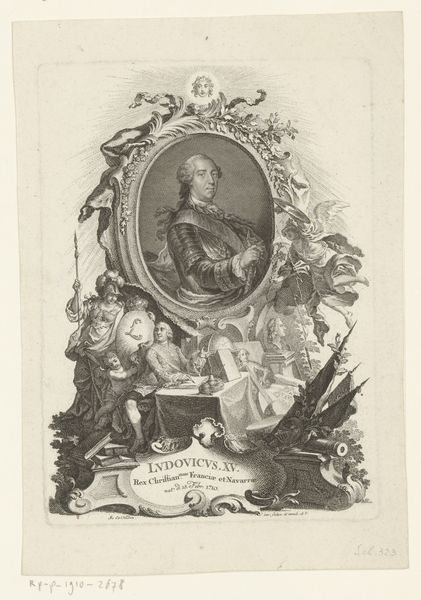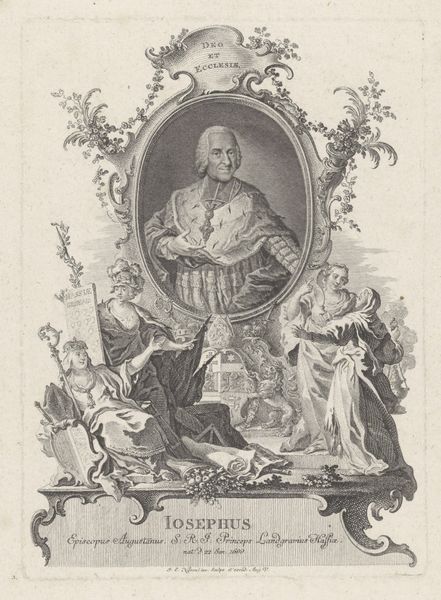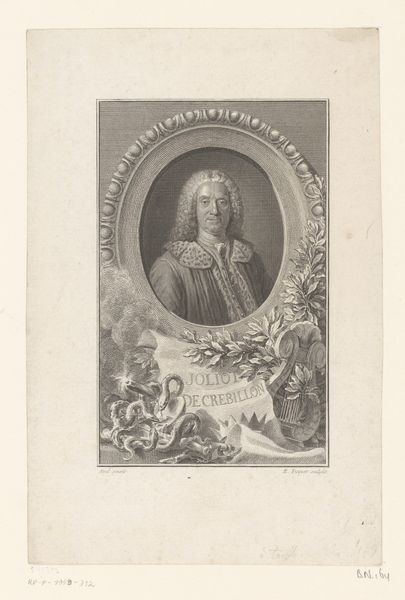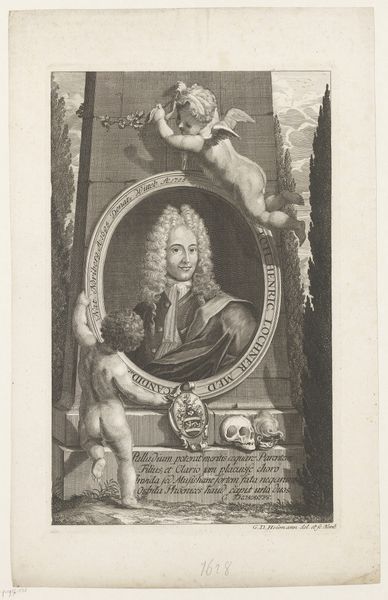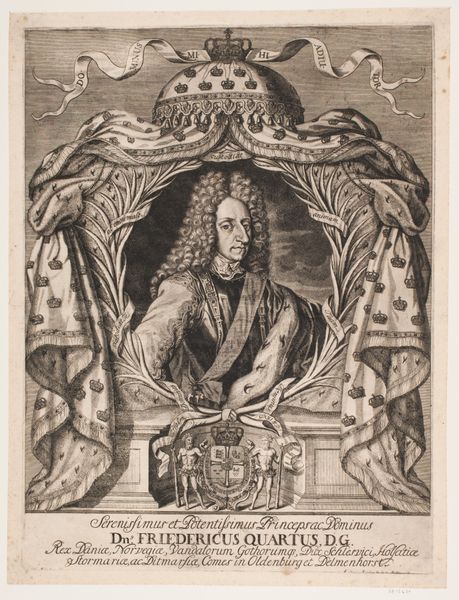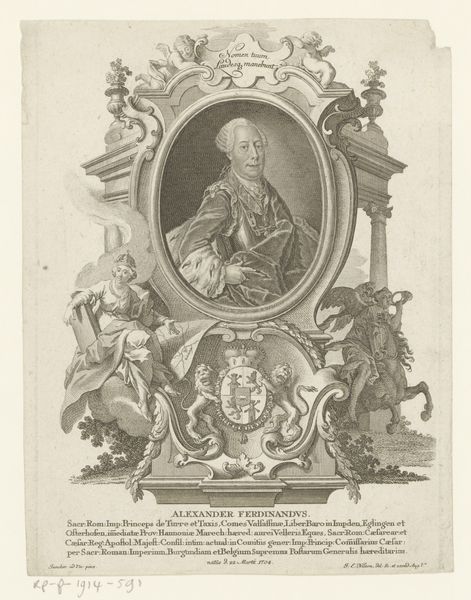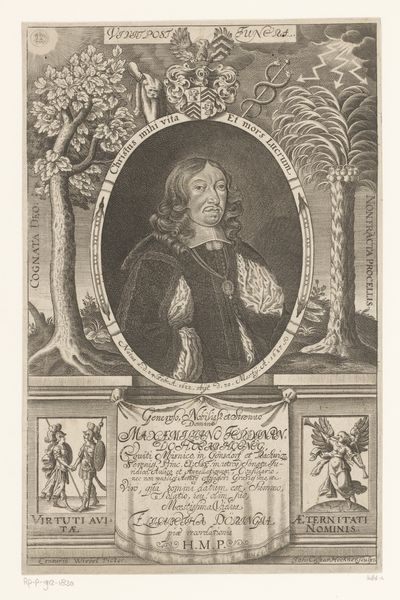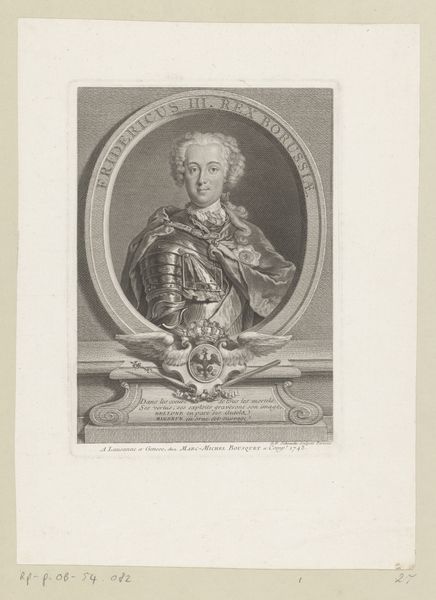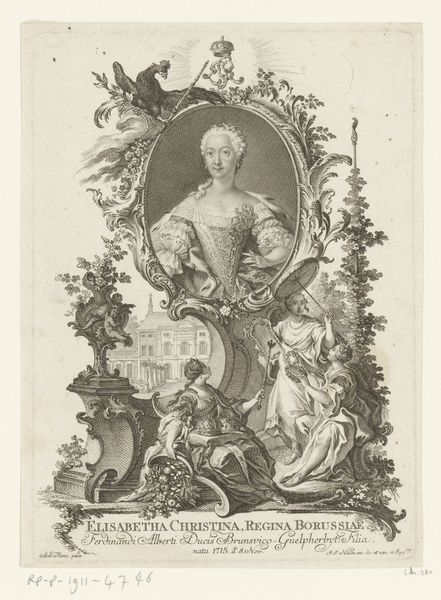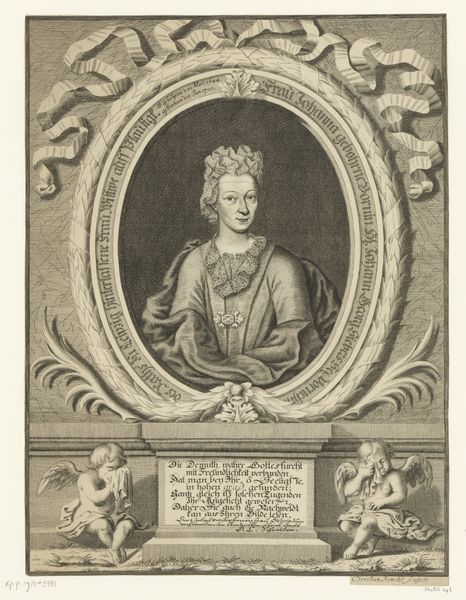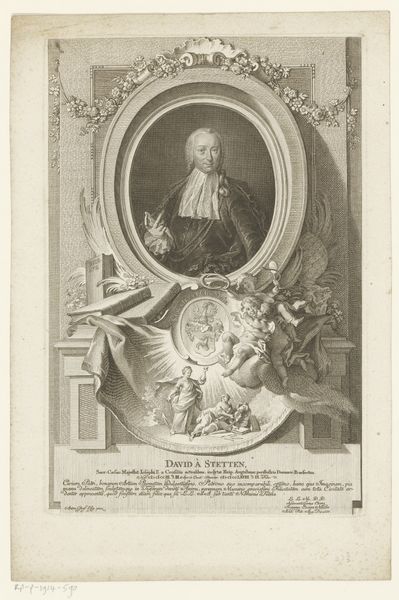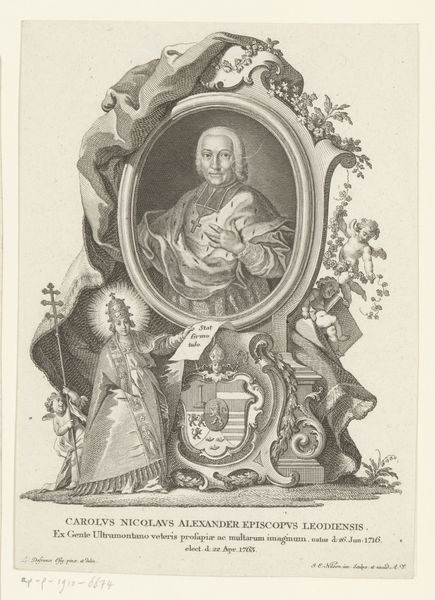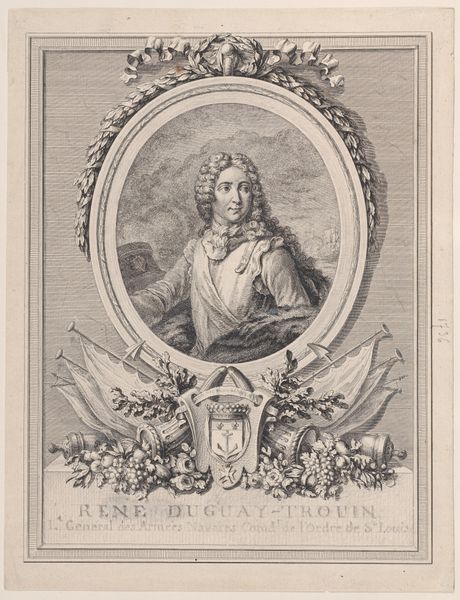
engraving
#
portrait
#
baroque
#
old engraving style
#
flower
#
pencil drawing
#
limited contrast and shading
#
engraving
Dimensions: height 389 mm, width 285 mm
Copyright: Rijks Museum: Open Domain
Curator: At first glance, I’m struck by a sense of stillness, an almost sepia-toned quiet. It’s quite lovely, isn't it? The delicacy is surprising. Editor: Absolutely. This is an engraving, dating roughly from 1665 to 1721, titled "Portret van Gertraud Fünger" by Christian Romstet. We're looking at an excellent example of Baroque portraiture. Curator: The floral frame is so incredibly lush; it overflows with abundance. Flowers as symbols of a person—I wonder what each bloom might represent. Did each flower correspond to a character trait? Or something about her family history? Editor: Possibly. Floral frames are pretty typical for these kinds of commemorative portraits. The flowers certainly soften the formality. Curator: What's intriguing, too, is her expression. It’s an interesting mix of expectation, resolve, and even weariness, don’t you think? The pearls lend her a touch of timeless grace, of course. But her eyes tell such a complex story. Editor: I think that's the appeal of portraiture generally; the artist trying to capture an essence, a soul, if you will. Notice the limited contrast and shading—perhaps a commentary on the limitations of portraying inner life through physical representation. The lack of ostentatious jewelry perhaps shows something of Gertraud Fünger's values? Curator: Or perhaps these Baroque portraits have always contained both celebration and elegy... She becomes an archetype. Her features transcend a mere record. Editor: I like that idea, how a very particular person in a very specific time and place transforms into something larger. Thanks to symbols, and this painstaking craft of engraving. Curator: And perhaps that's what speaks to us today. It isn’t merely seeing her; it is seeing something of ourselves.
Comments
No comments
Be the first to comment and join the conversation on the ultimate creative platform.
